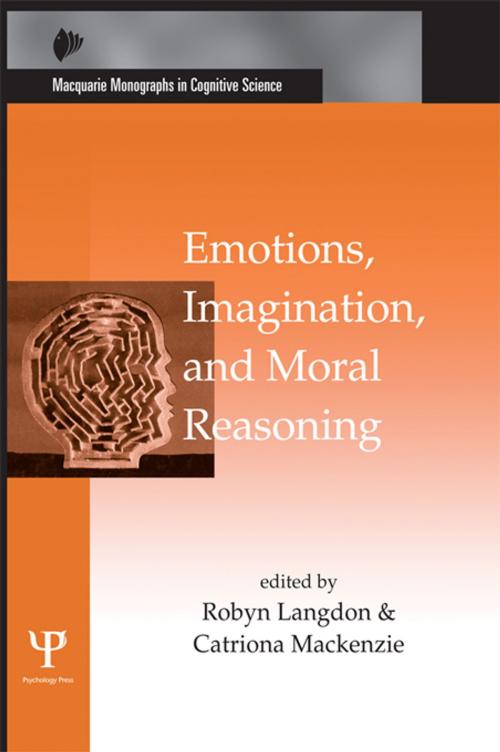Emotions, Imagination, and Moral Reasoning
Nonfiction, Health & Well Being, Psychology, Cognitive Psychology, Religion & Spirituality, Philosophy, Ethics & Moral Philosophy| Author: | ISBN: | 9781136631641 | |
| Publisher: | Taylor and Francis | Publication: | May 4, 2012 |
| Imprint: | Psychology Press | Language: | English |
| Author: | |
| ISBN: | 9781136631641 |
| Publisher: | Taylor and Francis |
| Publication: | May 4, 2012 |
| Imprint: | Psychology Press |
| Language: | English |
This volume brings together philosophical perspectives on emotions, imagination and moral reasoning with contributions from neuroscience, cognitive science, social psychology, personality theory, developmental psychology, and abnormal psychology.
The book explores what we can learn about the role of emotions and imagination in moral reasoning from psychopathic adults in the general community, from young children, and adolescents with callous unemotional traits, and from normal child development. It discusses the implications for philosophical moral psychology of recent experimental work on moral reasoning in the cognitive sciences and neurosciences. Conversely, it shows what cognitive scientists and neuroscientists have still to learn from philosophical perspectives on moral reasoning, moral reflection, and moral responsibility. Finally, it looks at whether experimental methods used for researching moral reasoning are consistent with the work in social psychology and with philosophical thought on adult moral reasoning in everyday life.
The volume's wide-ranging perspectives reflect the varied audiences for the volume, from students of philosophy to psychologists working in cognition, social and personality psychology, developmental psychology, abnormal psychology, and cognitive neuroscience.
This volume brings together philosophical perspectives on emotions, imagination and moral reasoning with contributions from neuroscience, cognitive science, social psychology, personality theory, developmental psychology, and abnormal psychology.
The book explores what we can learn about the role of emotions and imagination in moral reasoning from psychopathic adults in the general community, from young children, and adolescents with callous unemotional traits, and from normal child development. It discusses the implications for philosophical moral psychology of recent experimental work on moral reasoning in the cognitive sciences and neurosciences. Conversely, it shows what cognitive scientists and neuroscientists have still to learn from philosophical perspectives on moral reasoning, moral reflection, and moral responsibility. Finally, it looks at whether experimental methods used for researching moral reasoning are consistent with the work in social psychology and with philosophical thought on adult moral reasoning in everyday life.
The volume's wide-ranging perspectives reflect the varied audiences for the volume, from students of philosophy to psychologists working in cognition, social and personality psychology, developmental psychology, abnormal psychology, and cognitive neuroscience.















